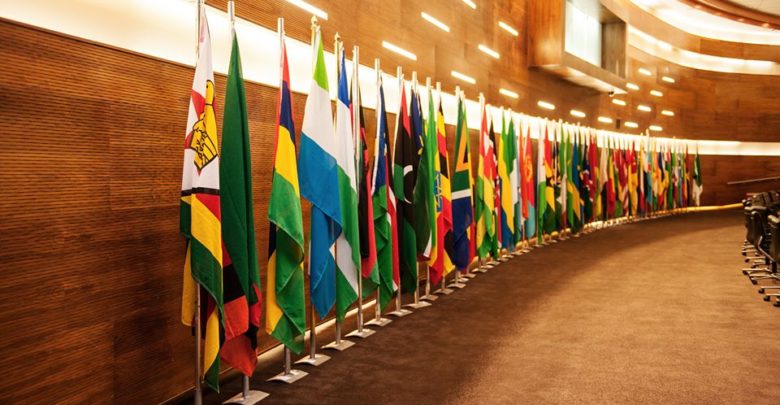المجتمع التعدّدي في الدولة الإفريقية من منظور الفعل الهوياتي: بين الاستقرار والتفكك الدولتي.
Pluralistic society in the African state from the perspective of the identity act: between State stability and disintegration

اعداد : علاء الدين فرحات – باحث دكتوراه تخصص دراسات استراتيجية – المدرسة الوطنية العليا للعلوم السياسية / الجزائر
- المركز الديمقراطي العربي
- مجلة الدراسات الأفريقية وحوض النيل : العدد الخامس آذار – مارس “2019” دورية علمية محكمة تصدر عن المركز الديمقراطي العربي “ألمانيا –برلين” .
-
تُعنى المجلة بالدراسات والبحوث والأوراق البحثية عمومًا في مجالات العلوم السياسية والعلاقات الدولية وكافة القضايا المتعلقة بالقارة الأفريقية ودول حوض النيل.
للأطلاع على البحث “pdf” من خلال الرابط المرفق :-
ملخص:
تهدف هذه الورقة البحثية إلى إبراز دور الهويات التحتية داخل الدولة الإفريقية ( الهويات اللينة) التي تضحى في غالب الأحيان معامل أزمة تنسف برهان العيش المشترك، مما يؤدي إلى زيادة قابلية الدولة للعطب والتفكك النظمي السريع، نتيجة انسداد أفق التواصل بين هده الهويات التحتية وارتفاع منسوب القلق من ضعف التعايش بينها، الأمر الذي غالبا ما يكون مؤداه عنف رمزي أو مادي.
إلى جانب ذلك ستقارب الدراسة للمكون الإثني كمصدر للنزاع في إفريقيا في ظل التمايزات العرقية والدينية، كما ستركز على طبيعة الانتماءات العرقية وغيرها من انتماءات الجماعات الموجودة على ارض الواقع، وعلى السمة الفعلية المميزة للتفاعلات القائمة بين الجماعات العرقية، هذا ولن تكتفي الورقة البحثية بتشخيص أزمة العيش المشترك بين الاثنيات المتعددة، بل ستقارب لتصور سياسي واستراتيجي يبين ممكنات إزالة فتيل الأزمات المرتبطة بـالتعدديةـ ومجموعة السياسات التي طُوّرت بهدف استيعاب التنوع الثقافي المتنافي لدى المجتمعات الإفريقية وإدارته.
تخلص الدراسة إلى أنَّ الإشكال ليس في التَّنوُّع الإثني، وكذا في مدى كفاءة الحكومات الإفريقيَّة في إدارة التنوع، و بناء دولةٍ قائمة على التعدد الإثني.
Abstract:
This paper aims to highlight the role of the sub-state identities within the African state (Soft identities), which often become a factor of crisis undermine the foundations of co-existence, and leads to increase the state’s vulnerability for early systematic disintegration due of the lack of communication among these identities and the high level of concern about their weak coexistence, all of that may lead to the physical and non-physical violence.
In addition, the study tries to getting closer to the ethnic component as a source of conflict in Africa which is known by its ethnic and religious distinctions. The study will also focus on the nature of the ethnic groups and other existed affiliations on the ground along with the real characteristics of inter-ethnic interactions. this paper will not only diagnose the crisis of inter-ethnic coexistence but will converge to a political and strategic perception of the possibilities of defusing the crises associated with pluralism and the set of policies that have been developed with a view to absorbing and managing the cultural diversity of African societies.
The study concludes that the problem is not about ethnic diversity but about the efficiency of African governments in managing diversity and building a multi-ethnic state.



